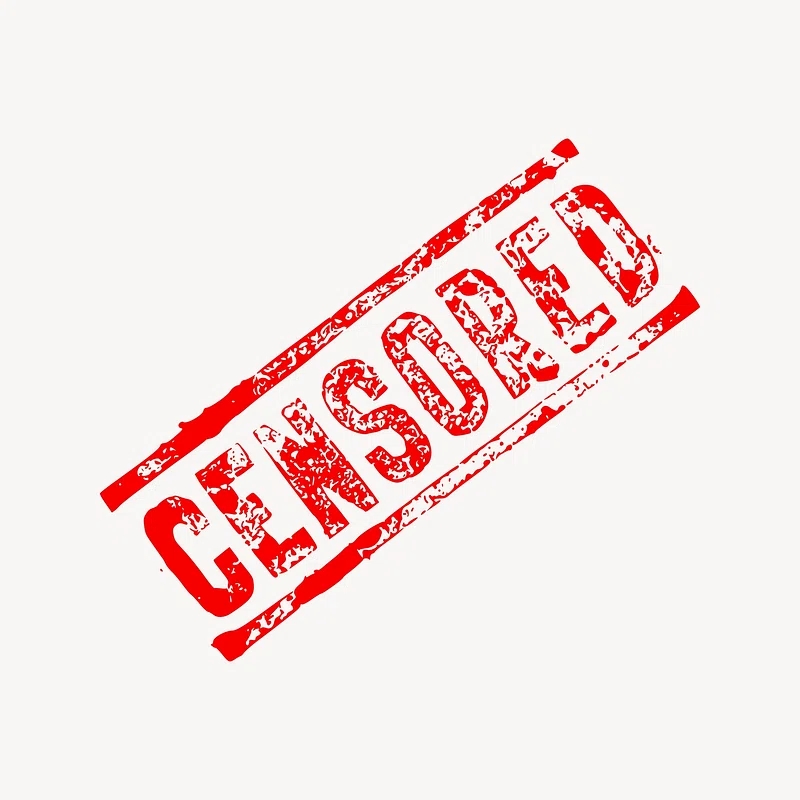By Ishikaa Kothari

Image courtesy of Rawpixel
TikTok and Instagram have enabled on-the-ground news in Gaza to circulate and become visible– making social media critical to the pro-Palestinian movement. Social media’s use as a journalistic and organizing tool poses a threat to Israel and its allies– the United States government and numerous American corporations like Meta– prompting censorship of pro-Palestinian users and social media bans. This is deeply troubling.
Journalism serves as the backbone of democracy, providing the necessary checks to hold those in power accountable. Free, independent media is supposed to deliver the public transparent, objective information so that people can make informed decisions. However, journalists exposing human rights violations have historically been systematically targeted. For example, according to the Committee to Protect Journalists, as of May 16, 2025, “at least 105 journalists and media workers were among the more than 35,000 killed since … October 7.” The killings of journalists in Gaza allow the Israeli government to control information about current events in Gaza and, therefore, the Western mainstream narrative.

Image courtesy of Aljazeera English
To make matters worse, American news outlets’ coverage of the conflicts in Palestine often sways toward Israel and fails to mention Israel as a perpetrator in articles about Palestinian suffering, suggesting corporate censorship. Specifically, The Intercept found a leaked memo exposing that “The New York Times instructed journalists covering Israel’s war on the Gaza Strip to restrict the use of the terms ‘genocide’ and ‘ethnic cleansing’ and to ‘avoid’ using the phrase ‘occupied territory’ when describing Palestinian land.” The Intercept further discovered that “major newspapers reserved terms like “slaughter,” “massacre,” and “horrific” almost exclusively for Israeli civilians killed by Palestinians, rather than for Palestinian civilians killed in Israeli attacks.”
As news outlets fail to fulfill their democratic obligations, social media compensates for publications’ shortcomings as its open-source media complicates Israel’s narrative and challenges its use of propaganda and misinformation to justify its ethnic cleansing. Palestinian journalists like Bisan Owda, Plestia Alaqad, and Hind Khoudary risk their lives to keep users around the world updated with real-time videos of routine bombings and devastation. This information enables Americans to form more honest, nuanced narratives with less control from those in power and, even, encourages them to join to stand in solidarity. The hope is also that, like how circulating police brutality videos on Twitter has put pressure on news outlets to pick up these stories, these videos of Gaza can encourage more, less-censored American reporting.
With social media exposing Israel, Meta has attempted to censor Pro-Palestinian content. The Human Rights Watch has documented about 1,050 cases of censorship on Instagram and Facebook since October 7th. The Guardian’s analysis of HRW’s report adds, “[Meta] exhibited ‘six key patterns of undue censorship’ of content in support of Palestine and Palestinians, including the taking down of posts, stories and comments; disabling accounts; restricting users’ ability to interact with others’ posts; and ‘shadow banning,’ where the visibility and reach of a person’s material is significantly reduced.”
American legislators are also working to ban TikTok, claiming that its Chinese ownership poses a danger to American users. This prohibition provides a way for the American and Israeli governments to control information about the Israel-Palestine conflict. Specifically, TRT World reveals that Wisconsin Congressman and author of the TikTok ban bill Mike Gallagher received $61,000 from the American Israel Public Affairs Committee, a lobbying group that advocates for pro-Israel policies, while drafting this policy. Additionally, Vox shares Senator Marco Rubio’s tweet on X– where he states, “TikTok is a tool China uses to spread propaganda to Americans, now it’s being used to downplay Hamas terrorism.” This speculation that the Chinese government and Hamas are driving this conversation undermines the work of pro-Palestinian activists and journalists and overlooks that a large portion of young people, the biggest users of TikTok, stand against the genocide.
Social media remains almost the only place to connect with Palestinians and receive media directly from Gaza, so the risk of losing this information outlet is dire. People have historically resisted oppressive structures by making news about injustices accessible to the public– such as with Ida B. Well’s The Red Record exposing the United States’s lynching culture and the samizdat, anti-communist Eastern European publications, fighting censorship. As history repeats over again, social media has become the modern-day media tool for the freedom of expression and press movements and resistance against systems of oppression.
With the world unable to accurately understand Israel’s catastrophic harm in Palestine with Meta’s censorship and the TikTok ban, we are unable to hold Israel accountable and its role as a perpetrator of genocide remains up for debate despite it killing over 35,000 people since October 7th. While social media may be a complex tool with its benefits and harms, it is imperative that we advocate to protect it and, simultaneously, Palestinian lives and our right to free media and expression.

